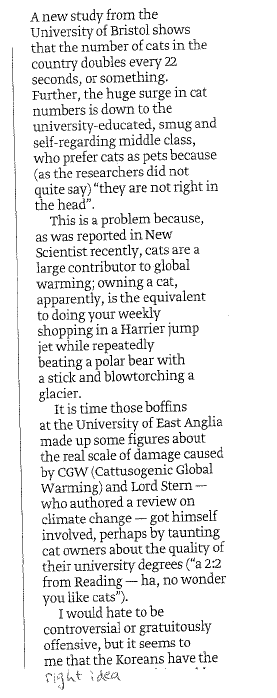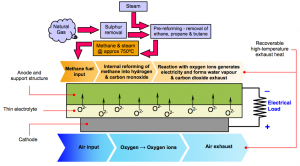If you want a good reason why Australia should and must think for ourselves and act for ourselves on climate change, look no further than a current court ruling from America:
“Nine judges of the US 5th Circuit Court of Appeals will rehear a climate change nuisance case bought by Hurricane Katrina victims”
Now don’t get me wrong, I have sympathy for the plaintiffs, a large group of Mississippi residents, many of whom are likely lower middle class. They probably lots most of what they physically owned in Katrina, and the preparation and response to that natural disaster could have been far better, I think most reasonable people could agree. But unless the court is actually taking the case in order to set a precedent so that later cases can be won on their merits, I don’t see why they would rehear the arguments on this. This is because the plaintiffs have argued that emissions from the operations of several energy and chemical companies have contributed to global warming, causing a rise in sea levels and adding to Hurricane Katrina’s ferocity.
The merits of the argument, while seemingly logical, do not take into account the chaos generated by the global warming phenomenon, and so tying the emissions of any one company directly to any specific hurricane, or its path or ferocity, is not logical. You cannot make extremely specific predictions (or tie causality) to individual weather events based on general input of CO2. Who is to say who’s CO2 emissions pushed the cycle of hurricane ferocity or frequency to a worse position, or into a positive feedback loop? No one can, at this point. General emissions of CO2 drive average temperature rises in the atmosphere and higher moisture content in the air, and higher ocean levels that in some areas can exacerbate local weather events. But problems (like hurricanes) don’t manifest themselves as averages, they come as extremes, and they come as chaos. No one can reliably predict the occurrence of, or path of a hurricane or tornado, any more than we can predict an earthquake.
Second, the issue of Katrina’s ferocity is of issue. The claim is that the higher sea levels gave support to Katrina’s ferocity leading to the damages sustained, because at the end of the story, that’s where they want to go, right? The money. They (and their litigators) want to make a whole bunch of money out of this disaster, and being able to establish that the severity of damage is worse than otherwise would have been is key to their argument. Katrina was a Category 3 when it made landfall in Louisiana, making it the 6th strongest hurricane in the Atlantic history. That’s nothing to sneeze at, but only in the top 20% of recorded storms. So, making the case that it was particularly ferocious is a bit tough. And while tying the worst of the damage to the storm surge has some validity, one could argue that the particular path had as much to do with the severity of the storm surge as sea level rise.
But all of this is just the detail. The real problem to me seems to be the fact that these people have to attempt to get through expensive tort what they should be getting through reasonable regulation. And virtually any regulation seems to be anathema to the Americans. Unless we in Australia, and the rest of the world, want to become a place where suing someone is the means by which we primarily gain social justice, then we should proceed to get ourselves in order with respect to climate change legislation, so that in addition to the savings on energy efficiency alone, we can also say that we aren’t the major source of the problem, and we won’t be a good target to sue.

